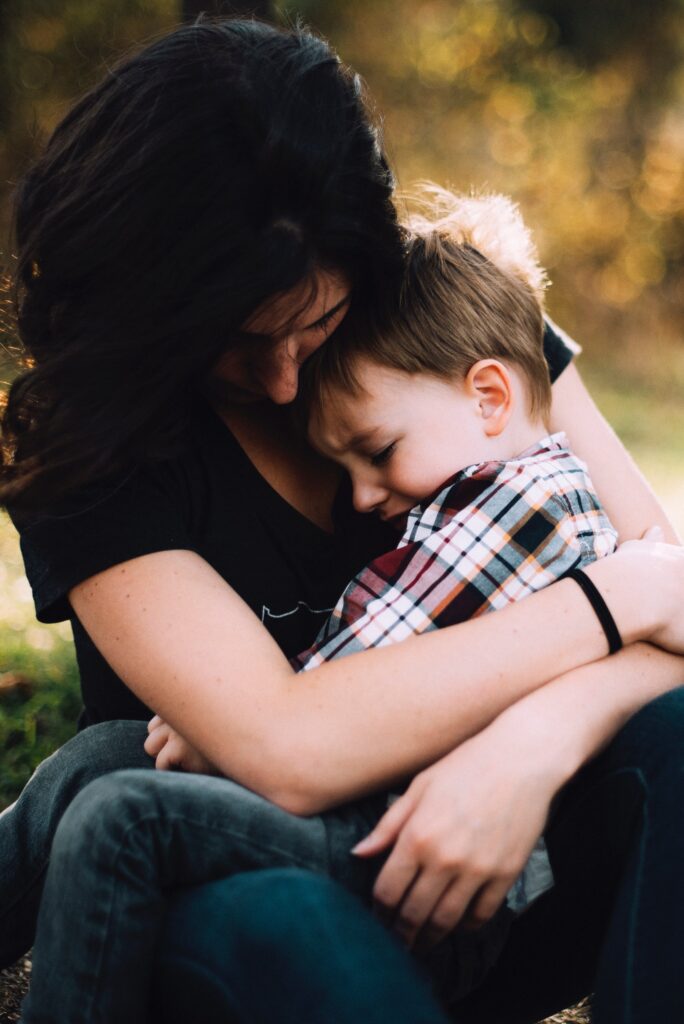Here we try to help everyone navigate the world of ASD but what about those who may be wondering what to do when an autistic child is hitting my child?
The situation can be heart-wrenching and bewildering for any parent.
However, it is crucial to approach this issue with empathy, understanding, and a proactive mindset.
In this article, we aim to shed light on the reasons behind such behaviour and offer practical strategies to support both the autistic child and their affected playmate.

Child being hit by another child with autism
There is no way of sugarcoating the fact that this is an incredibly difficult situation to deal with.
On one hand, you as a parent will instinctively want to protect your child and prevent any repetition.
But on the other hand you are intensely aware that the other child has special needs and is vulnerable in their own right.
Here are a collection of things to consider and tactics to try;
Communicate in an empathetic manner
Encourage open communication between yourself and the other child’s parents.
Honest conversations can help create a unified front in handling the situation.
Share your concerns and feelings while being receptive to the other parents’ worries as well.
Remember, it’s not a competition but an opportunity to collaborate and find solutions together.
Be gentle with their feelings also, they will likely be mortified that this behaviour has taken place and they are already likely to be under intense stress.
Demonstrate understanding
It is essential for parents to understand that aggression in autistic children is not a sign of malicious intent.
Autistic children often struggle with communication and social interactions, leading to frustration, anxiety, and sensory overload.
When they lash out physically, it is usually a reaction to feeling overwhelmed, anxious, or unable to express their emotions properly.
By fostering empathy and understanding, you can better navigate through these challenging moments.
Remember that both children involved require compassion and support.
Teach coping mechanisms
Both children involved can benefit from learning coping mechanisms to handle difficult situations.
For the autistic child, alternative ways to express emotions and alleviate anxiety can be introduced by parents or therapists.
These strategies might include using visual aids, sensory toys or distractions.
For the child on the receiving end of the aggressive behaviour, teaching empathy and understanding can help them process the situation with less fear and confusion.
Assure them that it’s not their fault and emphasise that the other child may struggle to communicate their feelings differently.
Also speak openly with your child about autism. You can explain that autistic children struggle with social situations and can become easily overwhelmed.
You can also explain that they often struggle with transitions and breaks to routine.
Encourage supervised and inclusive play
Create opportunities for inclusive play where both children can interact in a safe and supervised environment.
Gradually increasing exposure can help reduce anxiety and foster understanding between them.
Inclusivity can be a powerful tool in fostering compassion and acceptance among all children.
Set clear boundaries
Consistency is key when setting boundaries for both children.
Work with the other child’s parents to establish clear guidelines for behaviour during playtime and ensure that these boundaries are upheld by all parties involved.
Consistency can provide stability and predictability, which can be comforting for autistic children.
Summary – Autistic child hitting my child
Dealing with an autistic child exhibiting aggressive behaviour towards another child is a complex and sensitive matter.
It requires patience, understanding, and empathy from all involved parties.
By seeking professional guidance, fostering open communication, and encouraging inclusive play, we can create a supportive environment where both children can thrive.
Remember, every child is unique, and their struggles are an essential part of their journey.
As parents, let us stand together, supporting and empowering one another in raising compassionate, resilient, and empathetic individuals.
Together, we can create a more inclusive and understanding world for all children, regardless of their challenges.

